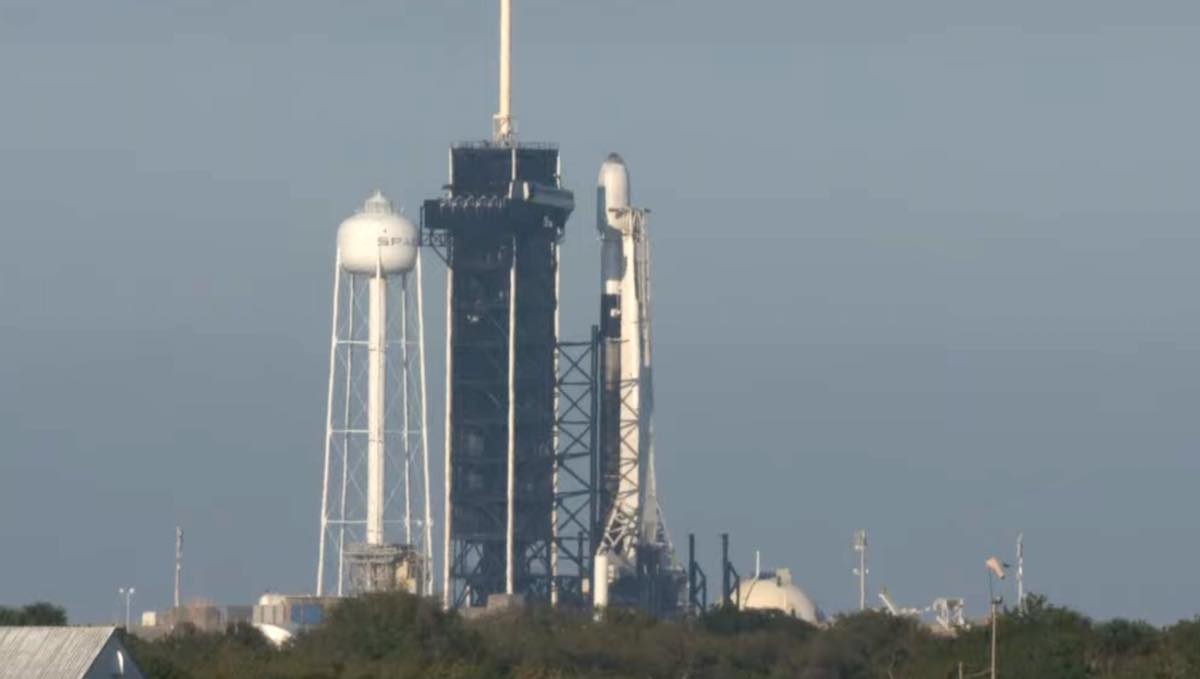
SpaceX wheeled a Falcon 9 rocket and 47 internet satellites to a launch pad Wednesday at Kennedy Space Center, ready to blast off Thursday to reinforce the Starlink constellation days after SpaceX expanded the network into Ukraine amid Russia’s invasion of the country.
The launch, set for 9:35 a.m. EST (1435 GMT) Thursday, will take off from pad 39A at Kennedy, continuing SpaceX’s busy start to the year. It will be SpaceX’s ninth mission since Jan. 1, and the 10th launch from Florida’s Space Coast this year, coming less than two days after the liftoff of a United Launch Alliance Atlas 5 rocket.
With the 47 new satellites going up Thursday, SpaceX will have launched 2,234 Starlink spacecraft to date, including prototypes and older models no longer in service. Jonathan McDowell, an astrophysicist who regularly tracks spaceflight activity, estimated SpaceX had 1,945 functioning Starlink satellites in orbit, as of Wednesday.
SpaceX doesn’t release information on the health and status of its Starlink satellites.
The launch Thursday is scheduled just six days after SpaceX’s previous Starlink mission from California. SpaceX plans another Starlink launch on a Falcon 9 rocket March 8, putting the company closer to reaching a goal of deploying roughly 4,400 Starlink satellites to beam high-speed, low-latency internet services around the world.
Eventually, SpaceX has signaled in regulatory filings it wants to operate as many as 42,000 internet satellites, all flying in low Earth orbit a few hundred miles above the planet.
The number of satellites planned by SpaceX and other companies have raised questions about the safety of operations in low Earth orbit, including how the fleets might create more space debris and cause problems in managing the ever-growing number of objects circling the planet.
Astronomers have also criticized the Starlink program for ruining some telescope observations, but SpaceX has mitigated the problem by making their satellites less reflective of sunlight.
But the upside of space-based internet services was on display in recent days after SpaceX shipped Starlink antennas to Ukraine to help citizens remain connected amid Russia’s military attack, which began Feb. 24.
Two days later, Mykhailo Fedorov, Ukraine’s vice prime minister, asked Elon Musk for help on Twitter.
“While you try to colonize Mars — Russia try to occupy Ukraine!” Fedorov tweeted in a public message to Musk. “While your rockets successfully land from space — Russian rockets attack Ukrainian civil people! We ask you to provide Ukraine with Starlink stations and to address sane Russians to stand.”
Musk responded the same day that Starlink service was activated in Ukraine. A shipment of Starlink user terminals arrived in Ukraine Monday, according to Fedorov.
Starlink service is now active in Ukraine. More terminals en route.
— Elon Musk (@elonmusk) February 26, 2022
Starlink — here. Thanks, @elonmusk pic.twitter.com/dZbaYqWYCf
— Mykhailo Fedorov (@FedorovMykhailo) February 28, 2022
Email the author.
Follow Stephen Clark on Twitter: @StephenClark1.
from Spaceflight Now https://ift.tt/hsnNQvz
via World Space Info







0 comments:
Post a Comment